
Initial from the charter granting Gaveston the earldom of Cornwall, showing the arms of England at top, and Gaveston’s coat of arms impaledwith those of de Clare below.
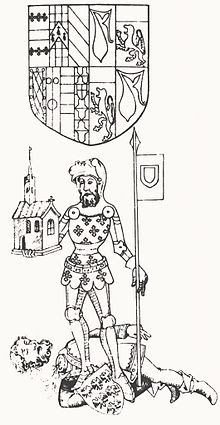

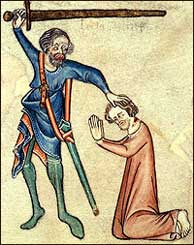
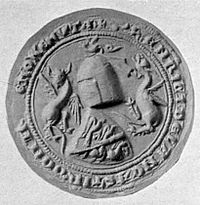
Seal of Henry of Lancaster from the Barons’ Letter, 1301, which he signed as Henricus de Lancastre, Dominus de Munemue (Henry of Lancaster, Lord of Monmouth). His shield couche shows the armorial of Plantagenet differenced by a bend azure (see below)

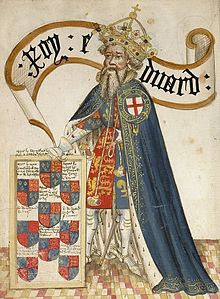
Reacties uitgeschakeld voor King Edward II, the tragic King
Opgeslagen onder Divers

Initial from the charter granting Gaveston the earldom of Cornwall, showing the arms of England at top, and Gaveston’s coat of arms impaledwith those of de Clare below.




Seal of Henry of Lancaster from the Barons’ Letter, 1301, which he signed as Henricus de Lancastre, Dominus de Munemue (Henry of Lancaster, Lord of Monmouth). His shield couche shows the armorial of Plantagenet differenced by a bend azure (see below)


Reacties uitgeschakeld voor The Reign of Edward II/Edward II, the tragic King
Opgeslagen onder Divers
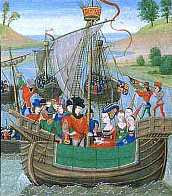 When Isabella, Edward’s estranged queen, and his foremost enemy, Roger de Mortimer landed on British soil near to the manor of Walton in Suffolk on 24th September 1326, Edward was taken by surprise. Not so much by the invasion itself, as he had been preparing for such an event for the past couple of months – but that the force they brought with them was so small. It consisted of about 1500 soldiers (exiled Contrariants and Hainault mercenaries) – hardly enough to constitute a great threat. However, if Edward thought his wife and Mortimer’s rebellion a pathetic gesture, he was soon forced to think again.
When Isabella, Edward’s estranged queen, and his foremost enemy, Roger de Mortimer landed on British soil near to the manor of Walton in Suffolk on 24th September 1326, Edward was taken by surprise. Not so much by the invasion itself, as he had been preparing for such an event for the past couple of months – but that the force they brought with them was so small. It consisted of about 1500 soldiers (exiled Contrariants and Hainault mercenaries) – hardly enough to constitute a great threat. However, if Edward thought his wife and Mortimer’s rebellion a pathetic gesture, he was soon forced to think again.
Reacties uitgeschakeld voor [Lady Despenser’s Scribery]/The flight and capture of Hugh Despenser and Edward II
Opgeslagen onder Divers